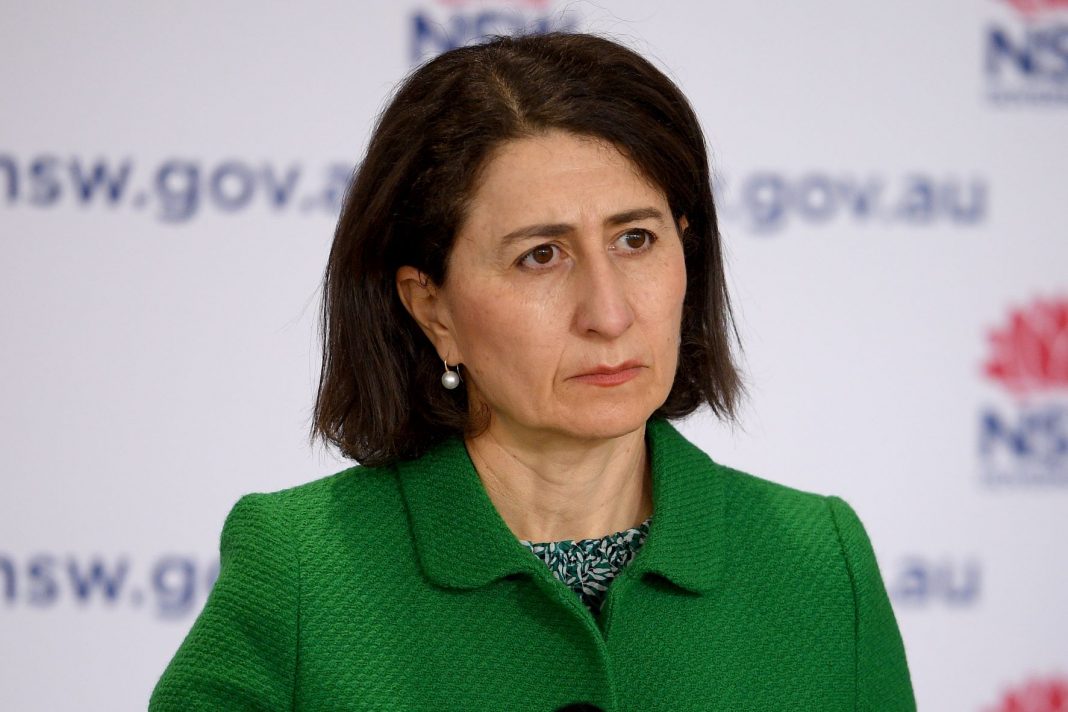All of NSW is under strict lockdown after a record number of COVID-19 cases that have authorities concerned for the healthcare system.
NSW reported 466 new locally-acquired cases in the 24 hours to 8pm on Friday, the state’s worst day during the pandemic so far.
The precautionary decision to lockdown was made following increasing numbers in Dubbo overnight, and further cases this morning that were relayed to the crisis committee team, Deputy Premier John Barilaro told ABC News.
Virus fragments were detected in sewage systems in areas with no known cases.
“It’s to make sure that we don’t become overwhelmed. A lot of our small regional communities don’t have an ICU unit so we would be transporting people from little town to some of the major centres,” he said.
Four deaths were also recorded: a woman in her 40s, a man and woman in their 70s, and a man in his 80s.
After NSW recorded more than 2000 fresh cases in the past week the Australian Medical Association had urged for the statewide lockdown saying the health system could no longer manage the alarming increase in case numbers.
”Our already fragile rural and regional health system will be unable to cope with increases in cases,” AMA NSW President Dr Danielle McMullen said in a statement.
Mr Barilaro announced via Twitter on Saturday afternoon the restrictions will last for one week for all of regional NSW.
While Greater Sydney has endured lockdown for nearly seven weeks, now everyone in the state must only leave their residence for an essential reason, with all schooling to be conducted from home.
People must carry masks at all times, no visitors are allowed in the home unless for carers’ responsibilities or for compassionate reasons, and those in a relationship.
A one-day grace period for planned weddings and funerals in those areas that were previously open has been granted up until the end of Sunday, but come Monday the new rules apply, NSW Health said in a statement.
The number of deaths is 43 during the current outbreak, with NSW recording 99 overall.
NSW Premier Gladys Berejiklian described the situation as “extremely concerning” and told reporters on Saturday morning travel restrictions would be tightened in Greater Sydney effective from Monday.
“You can do activity within your local government area but instead of 10km from your home, it will be 5km from your home and that’s for all of Greater Sydney,” she said.
The police presence will also ramp up in affected LGAs, with officers able to impose larger fines of $5000 for breaching public health orders.
“There will be a visible and increased police presence in the affected local government areas including deployment of specialised commands, and including the riot squad, highway patrol, and increased presence more broadly,” Ms Berejiklian said.
An additional 500 ADF personnel will be deployed on top of 300 already in NSW.
Also from next week, people in Greater Sydney will need a permit to travel to regional NSW while single people in affected LGAs will need to register their “single buddies”.
Ms Berejiklian told reporters people leaving their house for exercise had to be either actively exercising or supervising children.
“Exercise means exercise, many people know that but unfortunately some people were trying to get around the rules imposed,” she said.
The biggest increases in case numbers in western Sydney were in Blacktown, Doonside, Mount Druitt, Maryland, Guildford and Auburn.
Of the new local cases, 121 are linked to known outbreaks and 345 are under investigation, while 87 people were in the community for all or part of the time they were infectious.
The isolation status of 303 people is also under investigation.
AAP
Read more:



